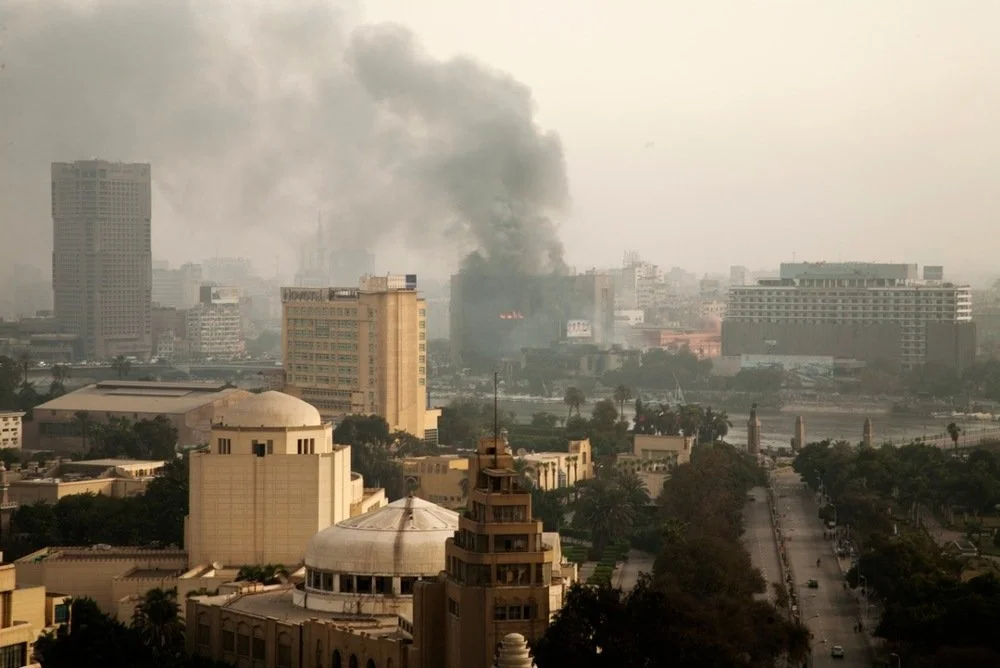EDITOR'S NOTE: This is a continuation of an ongoing series of insights and dispatches from Egyptian contributor Manal S. Kelig, a devoted mother, wife, tour operator, and peace promoter living in Cairo, Egypt. Our hearts go out to Manal and the people of Egypt during this difficult period.
by Manal S. Kelig
For the past 2 years Egyptians found themselves regularly facing heart-breaking choices!
When the revolution took place on 25 Jan 2011, I was not in a status to rejoice or condemn. Just one day earlier my late father had to undergo a serious operation as he was diagnosed with colon cancer.
 Celebrations in Tahrir Square after Omar Soliman's statement that concerns Mubarak's resignation. February 11, 2011 via Wikipedia CCL
Celebrations in Tahrir Square after Omar Soliman's statement that concerns Mubarak's resignation. February 11, 2011 via Wikipedia CCL
For the next two weeks we were having our own stressful events where the hospital we were in was attacked by thugs. Doctors and nurses could not come to work. Medical supplies were not delivered to the hospital. As we ran out of options and danger continued, we were forced to check out of the hospital with my father in this critical condition and have him home nursed by my sister who has no medical background except her amateur medical readings. As his condition declined, taking my father to a chemo session was over 7 hours ordeal in Cairo traffic that was continuously blocked by demonstrations and sit-ins. In April 2011 my father passed away.
While our lives were made hard due to the unstable political conditions, and as I had some friends celebrate the revolution and others dam it, I realized no matter what I have gone through I will not point fingers at any of them and blame them on what we had to face.
Our family like many others was a casual victim of the events. When we were attacked in the hospital we were not defending a cause, or chose to go in a confrontation. It was just our fate.
I knew very well many other Egyptians in different ways would be in that position in the coming period.
A New Egypt with No Leader
For the past 12 years I have regularly said in my lectures, “ No one knows what will happen when Mubarak dies, but I can predict there will be no wide acceptance of his son to take over and the different opposition parties will make sure it does not happen, but hopefully without violence. “
Then came the 2011 revolution, and like the other uprisings in Arab countries, it was driven by the dissatisfaction and anger of a new generation who formed over 60 % of Egypt’s population.
But the energy of 2011's revolutionaries was squashed by the power and organization of the already established forces in Egypt, particularly the earlier Supreme Council of the Armed Forces, the 80 years old Moslem Brotherhood movement and some remnants of the Mubarak regime.




